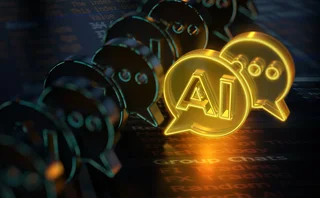Users Find ORBs, Other Middleware Are Needed To Build Java Applications
JAVA FLUENCY
NEW YORK--As more of the world's trading firms have learned how to make middleware work, they've also found that much of the middleware they're using needs to speak Java.
The object-oriented programming language from Sun Microsystems, Java combined with object request broker (ORB) and other middleware technologies has become an extremely important building block for many infrastructures.
A number of major players have found ways to apply Java and middleware to speed trading and access to trading
Only users who have a paid subscription or are part of a corporate subscription are able to print or copy content.
To access these options, along with all other subscription benefits, please contact info@waterstechnology.com or view our subscription options here: http://subscriptions.waterstechnology.com/subscribe
You are currently unable to print this content. Please contact info@waterstechnology.com to find out more.
You are currently unable to copy this content. Please contact info@waterstechnology.com to find out more.
Copyright Infopro Digital Limited. All rights reserved.
As outlined in our terms and conditions, https://www.infopro-digital.com/terms-and-conditions/subscriptions/ (point 2.4), printing is limited to a single copy.
If you would like to purchase additional rights please email info@waterstechnology.com
Copyright Infopro Digital Limited. All rights reserved.
You may share this content using our article tools. As outlined in our terms and conditions, https://www.infopro-digital.com/terms-and-conditions/subscriptions/ (clause 2.4), an Authorised User may only make one copy of the materials for their own personal use. You must also comply with the restrictions in clause 2.5.
If you would like to purchase additional rights please email info@waterstechnology.com
More on Trading Tech
What does it really mean to be a mid-tier OMS?
With Clearwater Analytics’ proposed $1.5 billion buy of Enfusion earlier this month, the market for order management systems appears to be evolving.
Agentic AI and big questions for the technologists
Waters Wrap: Much the same way that GenAI dominated tech discussions over the last two years, the road ahead will feature a lot of agentic AI talk—and CIOs and CTOs better be prepared.
Bloomberg offers auto-RFQ chat feed—but banks want a bigger prize
Traders hope for unfettered access to IB chat so they can build their own AI-enhanced trading tools
TMX launches ATS in US
The move represents the first expansion of the exchange group’s markets business outside of Canada.
AI co-pilot offers real-time portfolio rebalancing
WealthRyse’s platform melds graph theory, neural networks and quantum tech to help asset managers construct and rebalance portfolios more efficiently and at scale.
Opra considers ‘dynamic load balancing’ for options market
The data distributor recently completed a challenging project to build a 96-line feed. This new endeavor could prove just as challenging (but perhaps necessary) for the industry that will use it.
Big questions linger as DORA compliance approaches
The major EU regulation will go live tomorrow. Outstanding clarifications and confusion around the definition of an ICT service, penetration testing, subcontracting, and more remain.
Market data for private markets? BlackRock sees its big opportunity
The investment giant’s CEO said he envisions a far bigger private market business in 2025.







